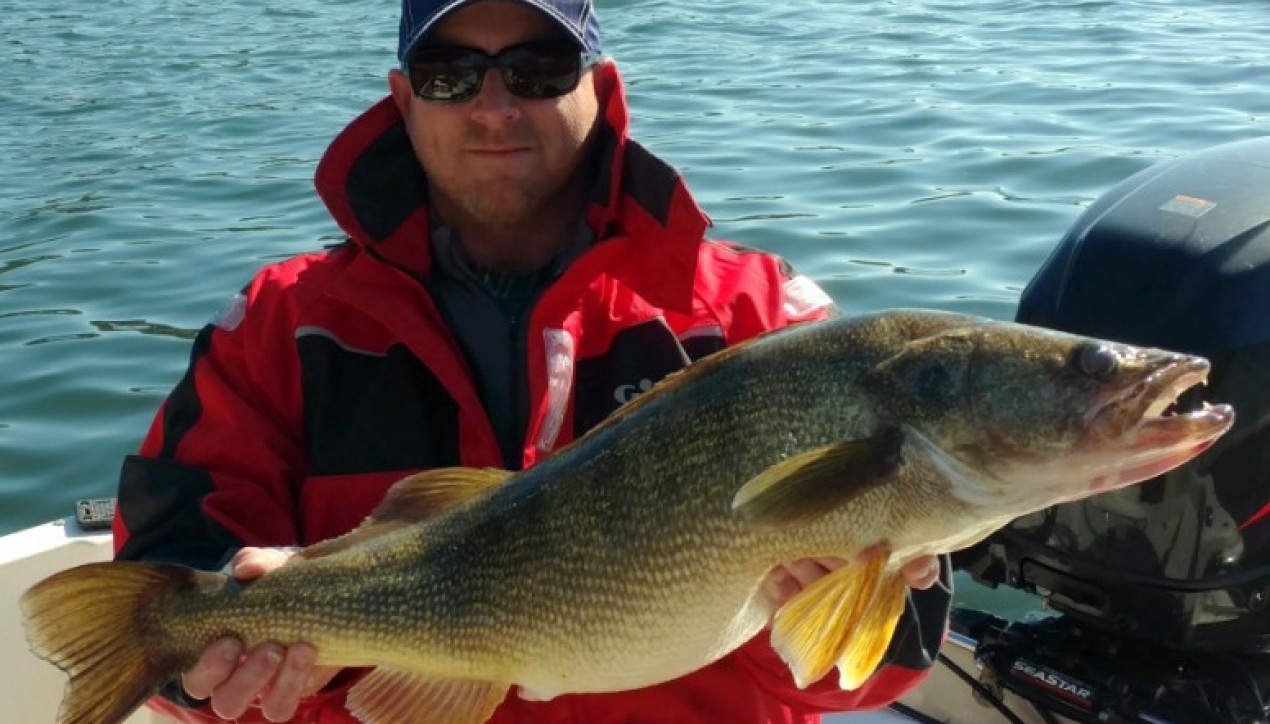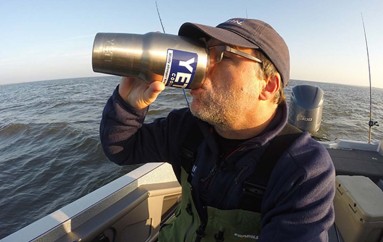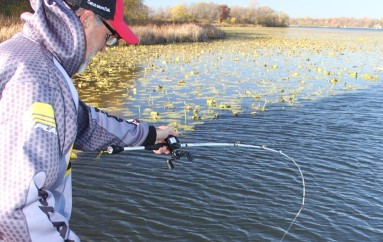
Angler Smashes Georgia’s Walleye State Record with 14-Pound Monster
For over two decades, Georgia’s walleye record has been untouched. The reason why was not so hard to figure out. Threatened by invasive species and dwindling habitat, native walleye in Georgia had almost been a thing of the past—but then an aggressive restocking program and tireless efforts from conservationists returned walleye back into one of the top fish for Georgia anglers. Three years after Georgia’s walleye stocking program was declared self-sufficient, an angler has now broken the state record at last. That honor goes to Wes Carlton, who on February 16 caught a 14-pound, 2-ounce fish from Lake Rabun.
“Catching a trophy fish is a thrill. Catching a state record fish is fantastic. But smashing the old state record is indescribable,” praised the Georgia Wildlife Resources Division, who noted that Carlton beat the old record by about 2 pounds and 12 ounces.
Not much of a difference when it comes to most things, but staggering when it comes to record walleye. Carlton, who works as a fishing guide, said that the fish actually bit four times before he got a hook in.
“We started out that morning fishing for largemouth,” the angler told Georgia Outdoor News. “The bite was slow, so after about 20 minutes, I said, ‘Let’s go catch a walleye.’”

Lake Rabun, a 835-acre reservoir on the Tallulah river, is known for its walleye fishing. Although Georgia anglers may have struggled in previous years to bring in trophy-sized fish, state officials say that with the new stocking program, walleye grow faster in Georgia than anywhere else in the world due to the warm climate.
“On the flip side, this same climate causes Georgia walleye to die sooner than anywhere else in the world,” officials said. “It would probably take 14 to 16 years for a female Georgia walleye to reach a weight of 18 lb, which may exceed their life expectancy in our state. Although some southern-strain Tennessee walleye have been reported to live for 20 years, it is extremely rare. 14 to 18 lb is probably the maximum growth a female walleye could attain in Georgia.”
Strangely enough, it was due partly to an invasive species that the state’ walleye bounced back so quickly. Officials took advantage of the large populations of blueback herring, which were illegally introduced in Georgia waters, to feed the growing walleyes.




